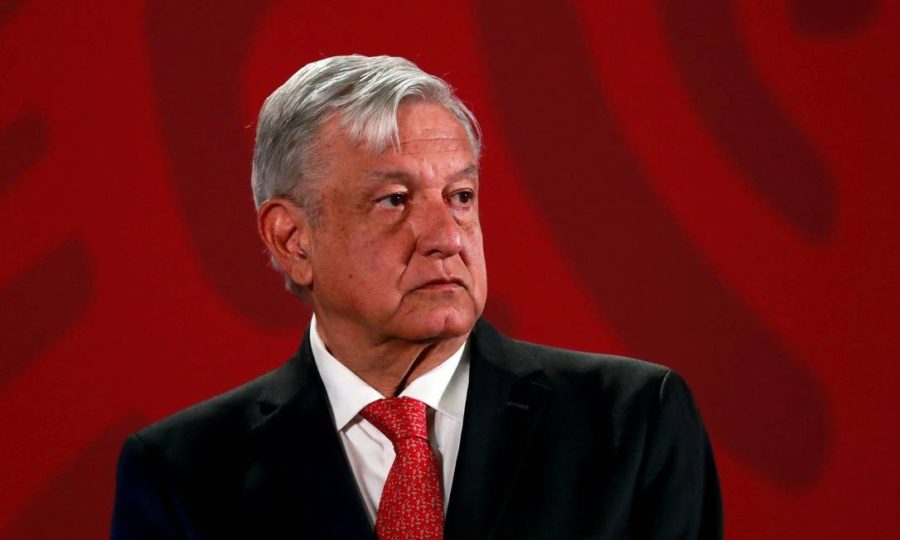RIO DE JANEIRO, BRAZIL – Mexico is flirting with the Bolivian model of lithium extraction. The administration of Andrés Manuel López Obrador is sitting on the world’s largest deposit of this metal and does not know what to do with it. López Obrador says that with the help of the new Bolivian Chief Executive Luis Arce, he is analyzing the “most convenient plan for the nation.”

He has asked for advice from the Bolivian government, which has been managing one of the largest reserves of the so-called white gold for years. “With the visit of president Luis Arce it was agreed that, given their experience in the exploitation of this mineral, they will help us analyze what is most convenient for the nation,” said the Mexican president in the morning press conference on Wednesday, May 19.
These statements have fueled the idea that the Executive is considering nationalizing the extraction, as proposed in the Bolivian strategy.
In a country used to being economically dependent on the state-owned oil company, the discovery of hundreds of tons of “the metal of the future” has given rise to much discussion. The debate has focused on who will be in charge of exploiting it and whether the nationalist discourse and energy sovereignty that López Obrador often preaches will be respected.
Along these lines, Senator Alejandro Armenta was among those who prompted the debate by submitting a bill guaranteeing that the profits from lithium production will remain in the country. On Wednesday, when asked about this initiative, López Obrador assured that they were analyzing it with the advice of the Bolivian government.
“They have experience in lithium exploitation,” said the president. “Progress has already been made in a first study and soon we are going to explain the Mexican government’s policy to be implemented. Based on that experience, what is best for us. We will soon have a diagnosis and a proposal,” he added.
Until three years ago, when the deposit was discovered in the Sierra Madre Occidental de Sonora, Bolivia held the largest reserves, with 21 million tons. The Mexican mine holds around 243 million tons, according to the companies holding the concession for the extraction and processing of the lithium carbonate (derivative), British Bacanora Lithium and Chinese Gangfeng.
López Obrador has assured that advice was requested because lithium is unknown territory for Mexico. “It is a new exploitation, it is not oil, it is not gas, it is not exploiting gold, silver, precious metals, it is something new of great value, very useful for the world’s technological development.”
Lithium and its derivatives are used by a small group of companies to produce rechargeable batteries for electronic devices and cars worldwide. It is also used in the pharmaceutical and nuclear industries.
The first step in Bolivia’s consultation was a meeting during Arce’s visit to Mexico on March 23. There, Economy Secretary Tatiana Clouthier was instructed to open a channel of dialogue with the Bolivian government. The next step was a videoconference between José Crespo, Bolivian ambassador to Mexico, and 8 Mexican government officials, headed by Clouthier.
During this conversation, Crespo outlined the Bolivian nationalist strategy to the Mexican officials. After that first meeting, the ambassador connected the delegation with the Bolivian authorities in charge of lithium: Minister of Hydrocarbons and Energy Franklin Molina, Vice-Minister of High Energy Technologies Álvaro Arnez, and the CEO of Yacimientos de Litio Bolivianos Corporación (YLB) Marcelo Gonzales.
However, Mexico is looking at the model proposed in the early years of the Evo Morales administration, when the intention was for Bolivia to industrialize lithium by its own means. At that time, Arce was Minister of Economy and one of the great strategists of the hydrocarbons nationalization policy.
However, the Andean country faced the challenge of extracting the metal with outdated technology, which hindered its position as one of the largest global producers. Faced with these challenges, in 2018 the government announced that it was partnering with Germany’s ACI Systems to streamline exploitation, thereby abandoning the nationalization project proposed at the outset.
After the departure of Evo Morales from the Government in November 2019, the lithium industrialization policy suffered yet another setback. The arrival of Jeanine Áñez to power resulted in the suspension of production. More than six months into Luis Arce’s government, the reactivation has not yet materialized.
In April this year, the Andean country launched an international tender for companies to expedite the extraction of the metal, to which more than a dozen private companies have now applied.
Source: El Pais

